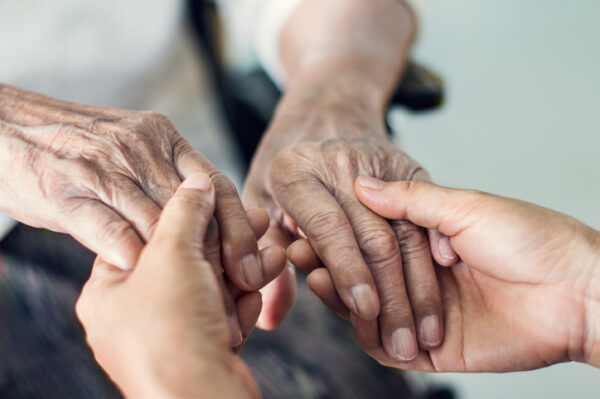

A little more than one quarter of Americans consider themselves to be family caregivers who look after a loved one, whether that is an elderly parent or grandparent or another relative. The role of the family caregiver is considered part of the cycle of life —a responsibility that many Americans experience firsthand. Although it can be rewarding, it can also be time consuming and stressful, especially if caregivers have to balance their role with a job, raising children, and other aspects of family life. The financial toll can be significant, too. Out-of-pocket costs may average $7,000 per year, according to data from AARP.
At the upcoming HLTH event October 8-11, support for caregivers in healthcare including public and private initiatives from healthcare organizations, policy and digital health tools, will be highlighted. To check out the agenda and to register, click here.
A survey by Care.com earlier this year revealed that 43% of employers prioritize senior care benefits more in 2023 than in previous years. Nearly one-third of employers (32%) said that employees are requesting senior care services. Senior care services topped other care benefits by a considerable margin as the family care benefit of choice if employers could only invest in one, according to the report.
The Centers for Medicare and Medicaid Services (CMS) launched a three-year initiative to support family caregivers last year. Among the goals of the 2022 National Strategy to Support Caregivers are to:
- Strengthen services and supports such as education, counseling, and peer support as well as resources to improve planning for future care needs
- Ensure financial and workplace security such as financial planning for family caregivers
- Expand data, research, and evidence-based practices
Altogether, the plan highlights more than 300 actions that federal agencies will take, as well as specific actions that states, communities, health care systems, long-term support, service providers, researchers, employers, philanthropic organizations, and others can take towards bringing these goals to fruition.
The stress of caregiving often impacts mental health. A survey by CVS Health and Harris Poll found that nearly half of people who identify themselves as family caregivers say their mental health suffers as a result of caregiving.
“If you are or have been a caregiver, you know this to be true, but to see the shared experience in numbers sheds light on the support and resources this group needs,”Dr. Jamie Sharp, vice president and Medicare chief medical officer for Aetna, which is part of CVS Health, previously told MedCity News.
Aetna’s Resources for Living program connects members to consultants who can help caregivers find back-up care and support groups to manage stress. Aetna has also established a partnership with Papa, which offers companionship services as well as pitching in with tasks such as grocery runs and transportation.
Digital health is positioned to play a vital role, whether it’s to provide financial guidance to caregivers, remote patient monitoring and virtual care for loved ones, or mental health support when stress and depression become overwhelming for caregivers.
Bayada Home Health Care is one of the largest home health companies in the country. In an interview with HIStalk, David Baiada, Bayada’s CEO, said he regards virtual care and remote patient monitoring as critical tools to support family caregivers. .
“It reduces the burden of having to get to a doctor’s appointment and creates the ability to monitor signs and symptoms proactively to avoid risk,” Baiada said. “There’s lots of incredible technology that is emerging and being adopted more quickly in sophisticated ways for both virtual care and remote monitoring.”
Ceresti Health identifies, enrolls, and supports family caregivers to help lower medical costs, deliver improved health outcomes and support aging-in-place, particularly for Alzheimer’s disease and other forms of dementia. Its digital caregiver activation platform uses data and predictive analytics to support family caregivers through a personalized non-medical program. Delivered through a tablet shipped to the caregiver’s home, the program includes coaching from a social worker and caregiver-enabled remote monitoring of loved ones.
Honor launched a caregiver for hire service to support adults looking after elderly parents in 2012. Last year the company added a web-based service called Honor Expert to help users ask and answer questions on aging-related matters.
Cleo helps users come up with financial, legal and long-term care plans. Last year it acquired Caretribe, which helps caregivers find benefits that might be of help and leverages navigators to provide support.
Ianacare’s app functions like a coach for caregivers. It gives them a checklist to make sure that as part of their duties in managing the care of a loved one,caregivers pay attention to their own physical and mental health needs.
Although the role of family caregivers is demanding, there are encouraging efforts from self-insured employers, healthcare organizations and policymakers to do more to provide much-needed support. With the Baby Boomer generation passing retirement age, innovative ideas and solutions to support caregivers will only continue to grow.
At the upcoming HLTH event October 8-11, support for caregivers in healthcare, including public and private initiatives from healthcare organizations, policy and digital health tools, will be highlighted. To check out the agenda and to register, click here.
Photo: ipopba, Getty Images














